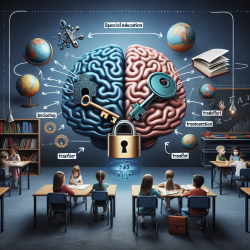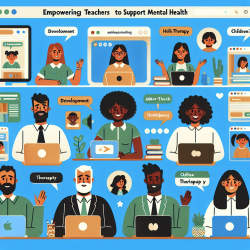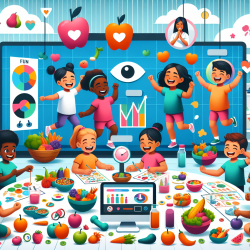Individualized Education Program (IEP) planning and meetings can often feel daunting for mental health professionals working in schools. However, with the right approach, these essential tasks can become a joyful and fulfilling experience. Here are some strategies to help you make the most of your IEP planning and meetings.
1. Embrace Collaboration
IEP meetings are a team effort. Embrace the opportunity to collaborate with teachers, parents, and other specialists. When everyone brings their unique perspective to the table, the outcome is a well-rounded plan that truly supports the student's needs.
2. Focus on Strengths
It's easy to get caught up in what a student struggles with, but don't forget to highlight their strengths. Recognizing and building on these strengths can create a more positive atmosphere and provide a solid foundation for growth.
3. Utilize Online Therapy Tools
Online therapy services, like those provided by TinyEYE, can be a game-changer. With the flexibility and accessibility of online speech therapy, you can ensure that students receive consistent support, even when in-person sessions aren't possible. This can greatly enhance the effectiveness of the IEP.
4. Keep Communication Open
Regular communication with all stakeholders is key. Ensure that parents and teachers feel heard and involved in the process. This open line of communication helps build trust and makes the planning process smoother.
5. Celebrate Progress
IEP goals are designed to be challenging yet achievable. Celebrate every milestone, no matter how small. This not only motivates the student but also reinforces the positive impact of everyone's efforts.
6. Stay Organized
Organization is crucial for effective IEP planning. Keep detailed records, set clear timelines, and use tools that help you stay on track. This reduces stress and ensures that nothing falls through the cracks.
7. Reflect and Adjust
After each IEP meeting, take time to reflect on what went well and what could be improved. This ongoing process of reflection and adjustment helps you continually enhance your approach and better support your students.
By incorporating these strategies, you can transform IEP planning and meetings into a joyful and productive experience. Remember, the ultimate goal is to create a supportive environment where students can thrive. Your dedication and positive attitude can make all the difference.










